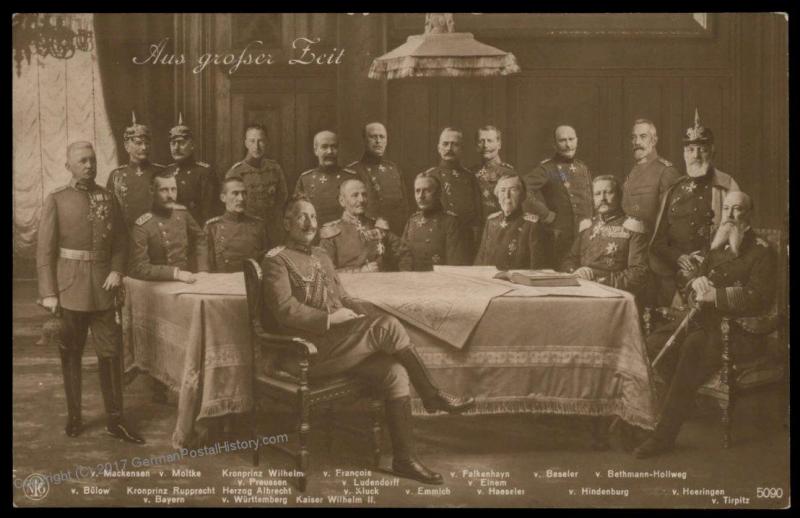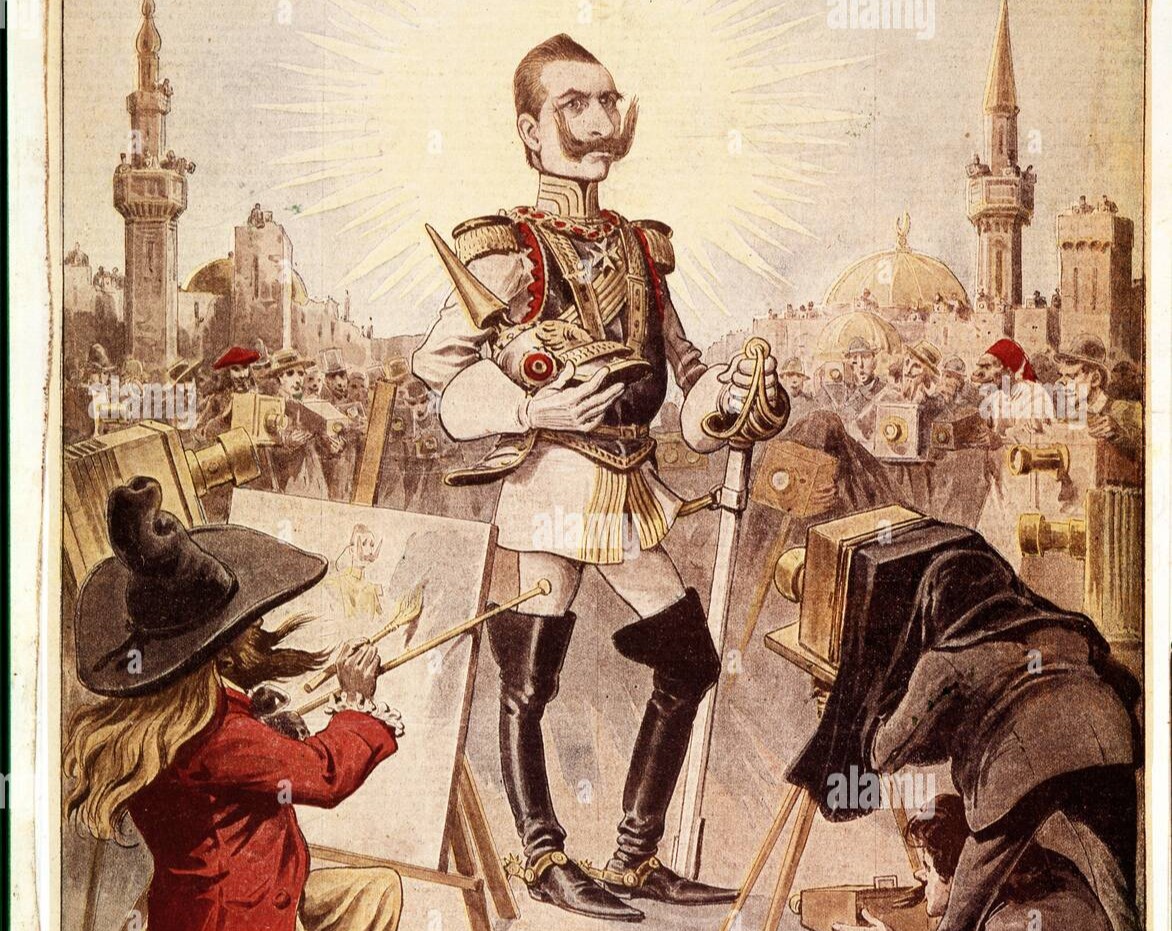By Maria Koulourioti,
His fifteen minutes of fame in the international sphere were surpassed by his blinding ambitions. A nationalist at heart, the German Kaiser who commenced an ongoing series of mistakes, making the newly united by Otto Von Bismarck Germany go from a growing superpower to a country that caused fear for over half a century. Grandson of Wilhem I, son of Frederick III, and cousin of Queen Victoria, Wilhem the Second, who dreamt to see Germany as world’s newest superpower.
To begin with, in order to counter Great Britain’s hegemony in the sea, Wilhelm II, as Kaiser, amassed a massive and costly Navy. Rather than Bismarck’s masterful diplomacy, which maintained diplomatic relations with even the most hostile of the country’s adversaries, Germany now faced France on one side, attempting to reclaim land it had lost to Prussia in the 1871 war. In the meantime, Russia, feeling deceived, looked for and discovered a way to unite with France in order to attack Germany from two angles. In response, Germany unveiled the Schlieffen Plan, which stipulated that before taking on France, the weaker adversary Russia had to be quickly destroyed. In the end, this invasion launched World War I into full-scale combat.
Germany was united under the leadership of his grandfather, Kaiser Wilhelm I, who ruled with his astute “Iron Chancellor,” Otto von Bismarck. The Chancellor’s system of alliances, which he created and oversaw, had kept peace and good relations across Europe. This was required because, while Germany, which had just united and was bordered by several countries in Europe, was in a prime location for commerce, it was also quite open to assault in the event of war on multiple fronts. Wilhelm I passed away in March 1888, the “Year of Three German Emperors,” at the age of 90. His son and Wilhelm II’s father, Frederick III, passed away in June due to cancer not long after.
The newly crowned Kaiser (or King) in the same year, was not interested in receiving diplomatic training; instead, he wanted to establish himself as a capable leader. After Bismarck’s dismissal, his intricate alliance system—whose reciprocal elements promoted moderation—was purposefully dismantled. When Kaiser Wilhelm II failed to extend the friendship treaty with Russia, the Czar was forced to form significant alliances with the countries that had historically opposed German expansionism: France and Great Britain.

In 1902, the administration struggled to amend the Tariff Law since its majority in the Reichstag did not endure. As Germany spent more and more on the armed forces, the navy, and its new colonies, its budget began to run short.As such, Wilhelm’s emotional interference in German foreign policy led to a lack of clarity and consistency in Germany’s dealings with other countries. Wilhelm committed several missteps in public, the worst of which being the Daily Telegraph incident in 1908.By 1913, the national debt had ballooned to 490 billion marks.
A major factor in the start of the war was Wilhelm’s reckless promise of unrestricted support to Austria-Hungary during the July 1914 crisis. As a military leader, he proved to be indecisive and incompetent, and the German High Command grew in influence both strategically and politically. Wilhelm had to resign on November 9, 1918, and was sent to neutral Holland, where he stayed until his death in 1941, as his presence had become a hindrance to peace talks by late 1918.
The pomp and circumstance of military heraldry appealed to and delighted Wilhelm, but his theatrical posturing as the “supreme warlord” only served to mask his unpredictable nature and lack of efficiency as a military commander. Moreover, the Army leadership gained more social prominence during World War I, eventually overthrowing the Kaiser’s power. William II’s poor diplomacy resulted in the formation of an alliance system to counter the Germans’ desire for their Empire, or “a place in the sun.” Germany sided with Austria-Hungary, the surviving part of the once-dominant Hapsburg Empire, which had a meagre army and gloomy, disobedient populace yearning for independence for their country.
On November 9, 1918, Wilhelm II was compelled to step down due to Germany’s loss. In actuality, his abdication was declared prior to his giving his permission. He fled to the Netherlands, where he purchased a manor estate, and after his wife died and his son committed suicide two years later, he fell into a severe despair. He was never given the opportunity to visit Germany again, and his early adoration for Adolf Hitler was not returned. At the age of 82, he passed away in exile in 1941 in Doorn, a tiny Dutch town, at a manor home known as Huis Doorn.
His picture was associated with evil during World War I and was thought to be the ultimate root of all German “frightfulness.” Wilhelm’s careless public remarks and unpredictable foreign policy deeply offended the world and are widely seen as major factors in the collapse of the German Empire. Furthemore, it is interesting the Kaiser’s action as a pile of dominos stacked against each other, and every time he acted only according to his untruthful ambitions and not pragmatic goals as a global actor and leader of his country, the world would be nowhere near as we know it. If you ask me, this article wouldn’t even be written in english.
References
-
The growth of democracy in Germany, 1890-1929 – Weimar Germany overview – AQA – GCSE History Revision – AQA – BBC Bitesize. Available here
-
Linder, A. (2017). Wilhelm II of Germany – World Leaders in History. WorldAtlas. Available here




